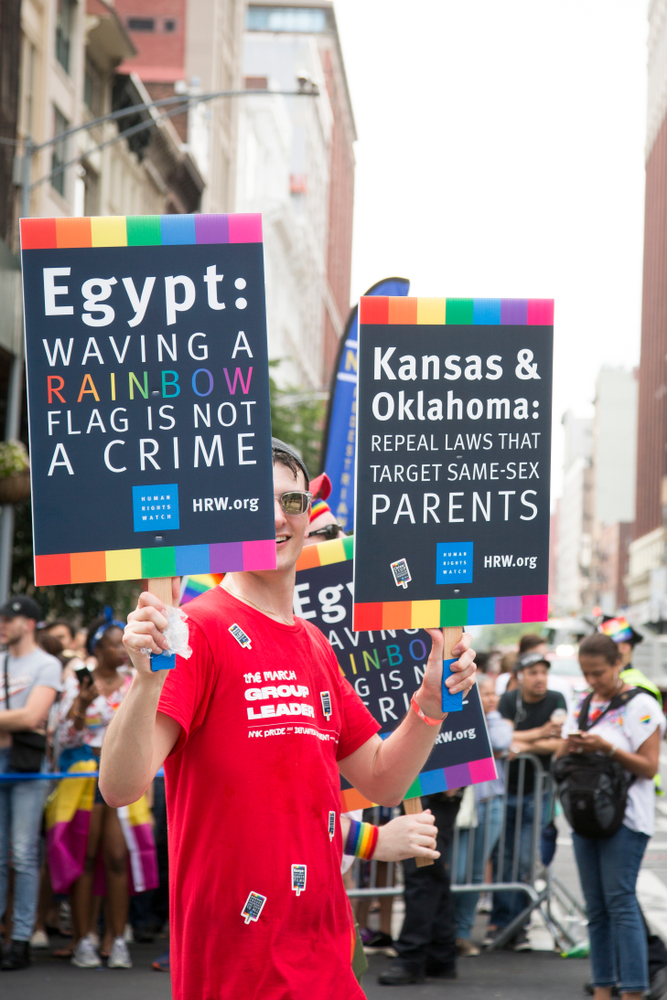
Digital targeting is a risk LGBT people in Egypt and the Middle East run when using social media right now, according to Human Rights Watch.
Since 2017, the Egyptian government has cracked down hard on any public displays of being LGBT. As of October 2017, there had been 43 arrests of gay and trans people under Egypt’s intentionally-vague laws about ‘debauchery’ and ‘incitement to debauchery.’
The arrest that got the most airtime was that of Sarah Hegazy, a young woman who attended a 2017 concert in Cairo by Mashrou’ Leila, a Lebanese band with an openly gay lead singer. Hegazy’s picture was taken at the concert with her sitting on her friend’s shoulders, waving a rainbow flag. The picture wound up being wildly shared on Facebook, both by supporters and opponents, and only days after the concert, it wound up drawing authoritarian attention. Egyptian police arrest Hegazy and dozens of other concertgoers for “joining a banned group aimed at interfering with the constitution.” She was held in jail for three months, most of it in solitary confinement, and subjected to torture. After her release, she fled to Canada, and eventually took her own life.
Rania Amdouni, a trans woman in Tunisia, was photographed at a protest against police violence. Police officers posted her image to Facebook with her full contact information, and slurs regarding her gender expression. When she tried to file a complaint for police harassment, she was arrested for shouting. She has not been heard from in the year since her arrest.
These experiences has been far from unusual. Digital surveillance of LGBT people in Egypt spiked during the pandemic. In 2020, a campaign of public ‘outing’ began, with both police and citizens creating fake accounts on dating apps to entrap people seeking same-sex relationships and circulate their private information.
An article published by the Human Rights Watch in August last year called for action from social media companies like Facebook and Twitter to help crack down on digital targeting, but so far nothing has been done.
Photo: Glynnis Jones / Shutterstock
